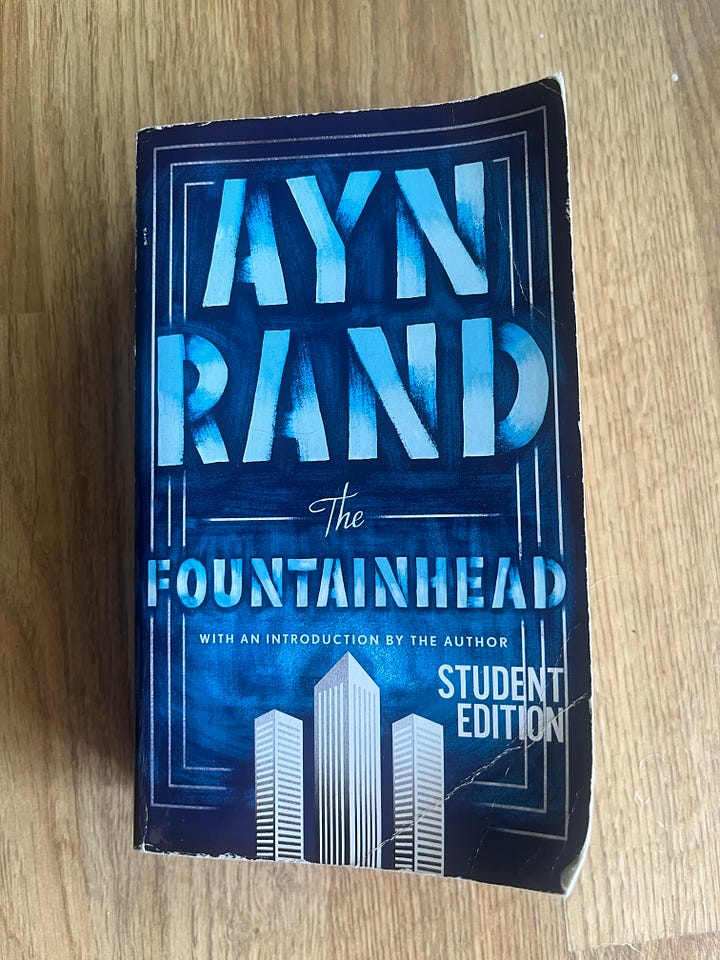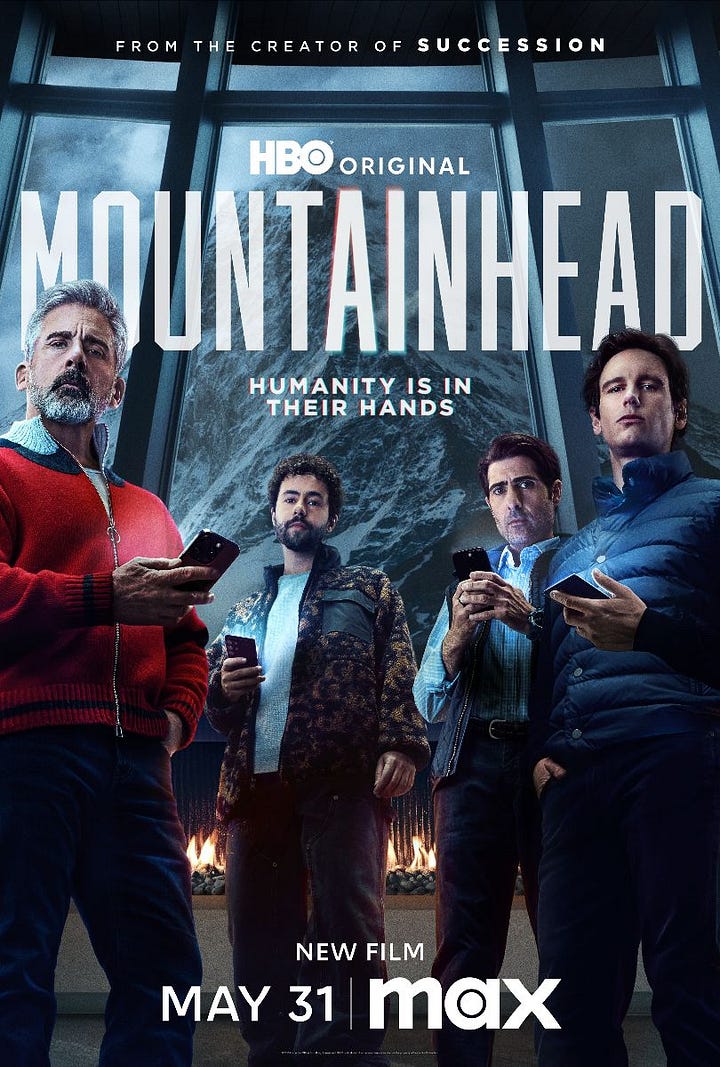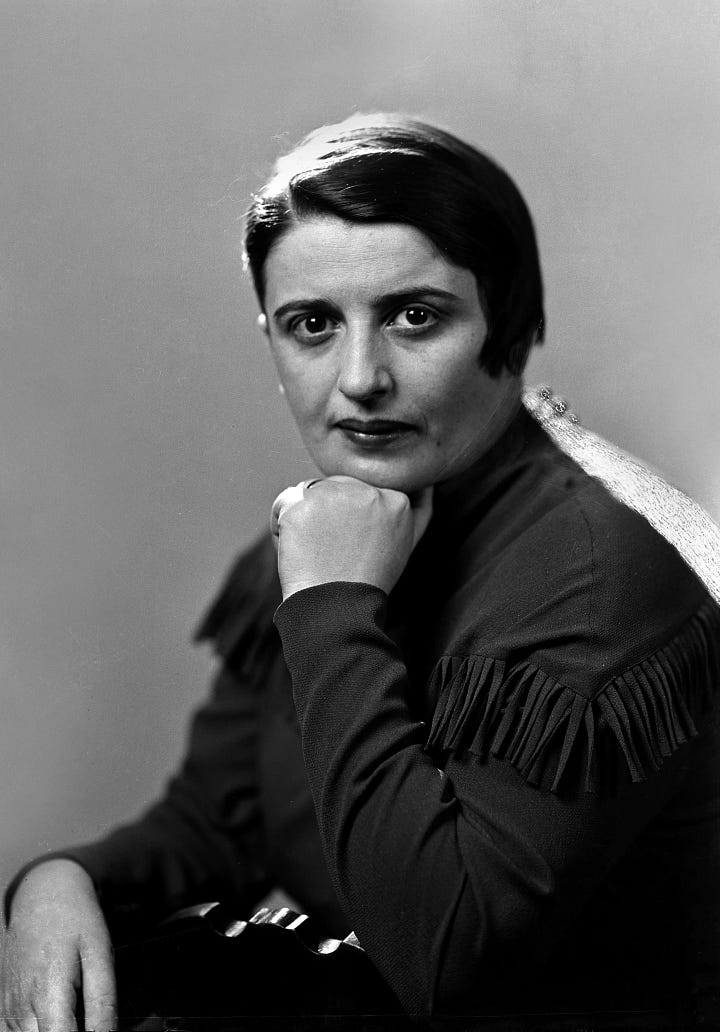The Fountainhead and Mountainhead
Catching a reference and examining the virtue of selfishness
Reading Lately:
I’m writing this on July 4th, which means it’s late for a monthly newsletter, but I needed a few extra days to finish up the 700-page tome that is Ayn Rand’s The Fountainhead. It turns out this is the perfect day to talk about how to build up, and how to tear down, a country.




I’ve always been into reading older books, especially what we consider literary classics, for multiple reasons; first, it’s cheaper. If you read a lot, you know that keeping up with new releases can get pricey (but if you can afford them, lucky you!). East Nashville Books is the used bookstore I wanted to exist in this neighborhood and I feel really lucky that I’ve gotten to start building it. The other reason I love a classic is because it’s part of our cultural lexicon. I don’t want to miss the reference and I want to be in on the joke! Case in point, the new HBO movie, Mountainhead, that just came out.
I resisted watching Mountainhead at first because I thought it was a TV series and couldn’t really stomach the idea of devoting more time to thinking about tech billionaires (it’s the story of a group of four of the richest men in the world gathering at a new mountain mansion to strike a deal). When I realized it was a movie though, and came from the writers of Succession, I thought I could spare an hour and a half. I was already reading The Fountainhead and didn’t even realize it was a reference to the book until Ayn Rand was directly mentioned. Ah hah! The dots connected and suddenly I had so much more context to the movie and my grasp of what they were trying to explore thematically opened up.
On the surface, the book is about architecture and building in 1920’s America, but the core of the book is about what it means to be an independent human being, and how dependence, packaged and sold in a million different ways, keeps the masses unhappy and easily controllable. It’s about the virtue of selfishness and achievement as the backbone of human progress and dignity.
Altruism, self-sacrifice, and collectivism are viewed as tools of oppression. Men are told to be selfless, and then forget what it ever meant to have a self, a goal or a desire. They’re told we’re all equal and everyone is as valuable as everyone else in every aspect, told to quiet their ego and disappear into a puddle of mediocrity, yet no great invention or innovation has come from a group. Collaboration is compromise. Second-handers, as the book calls them, are those who live fully dependent on others. Their actions are only valuable in relation to someone else, to help them or to hurt them, to impress them or persuade them.
It’s a complicated subject to grapple with, hence the 700 pages. How can altruism be a bad thing? How can self-sacrifice for the group end up hurting ourselves and the world around us? Is this form of independence just a justification for capitalism? Particularly in the 1920’s, as the world contended with rising movements of socialism, communism and authoritarianism, were the masses simply being fooled into belittling themselves? Tell people that the only good is for the group, tell them that nothing is too serious, to laugh at everything, and they start to laugh at themselves, devalue themselves.
In Mountainhead, as in reality, achievement can look pretty dirty. There’s a valid claim that billionaires shouldn’t be able to exist, that they only exist on the back of low-wage workers. Inequality is the plague of our times. Are these tech barons independent? At what cost? Or are they the worst kind of second-handers, not building as a means to represent their truth, but as a means of gathering power, and then showing it off to the very people they’ve disenfranchised?
In many ways, the book argues against liberal progressivism, which is largely focused on the communal good. Why ask a man making more money to pay for the deficit of others? Maybe the best way of lifting people up is to show them how they’ve been kept down.
I’ve been hearing a lot about the new book Abundance by Ezra Klein and Derek Thompson which discusses the struggle of Democratic policies when it comes to building and infrastructure. We can often, with the best intentions, try to include everyone and every need in a project. The problem is the projects just don’t get completed (or they hardly get started). I see echoes of the frustration of collaboration here. If there is so much input on any given decision, we can easily lose traction and end up in a lose/lose for everyone.
America, and even the English language, are very focused on the individual. What does the promise of the pursuit of happiness mean, and if everyone serves only themselves is it possible we are closer to that happiness than each man trying to serve another?
That being said, I think there’s a lot that can be argued against in The Fountainhead. Oppression can come in many forms, but it’s real and there are real policies and institutional norms that hurt citizens, particularly those of marginalized groups. This book is largely about white men, there are few mentions of race otherwise, and even though the novel is written by a woman it still doesn’t pass the Bechdel test.
I think the book would insist that these injustices are still the fault of second-handers aggregating power for themselves. The truly independent do not want to rule, they want to achieve only for their own means. In the age of figures like Elon Musk, who have achieved so much in terms of scientific and technological advancement, there’s a balance that has to be struck between not getting in their way, and also not letting them use their achievements to hold down the mass of the population. I found myself arguing with the book, agreeing with it and then arguing again. It felt as relevant as ever.
The writing is intelligent and funny, sarcastic and thoughtful. There’s so much style, and the characters have big, complicated personalities. I also read The Women by Kristin Hannah this month, and though the plot propelled the story along and the time period and subject matter (about the role of women in the Vietnam War and the treatment of troops on their arrival back home) were engaging, reading something like Rand’s work after made the difference between the books so stark. I want to read something that isn’t just about plot. I actually don’t care all that much about plot. I care about people and how they see the world around them and relate to one another and themselves. I want writing that challenges me and surprises me.
I haven’t read Atlas Shrugged, Rand’s other major work, but I’m looking forward to it and have high expectations.
Read a classic! It might be suprise you how modern it can be. No matter what changes, we’re still humans trying to understand ourselves even a hundred years later.
Story Squad:
Inside the store, we made a very exciting announcement this week with the launch of our young readers program, Story Squad!

Starting July 19, we’ll host a reading group every other Saturday morning at 9:30am to help engage new readers and build literacy skills. We’re so lucky to have Dr. Natalie Griffin leading this group. Natalie is a literacy educator and researcher with expertise in helping children learn to read and develop a love of stories and books.
This group is for children ages 6-8, heading into first or second grade. We ask parents to stay through the hour and we’ll provide books for the children to pick out during each session to make sure everyone interested can access this program.
If you’d like to sign up or learn more please email carrie@eastnashvillebooks.com. Let’s get reading!!
New (to me) words:
Bromide - a trite and unoriginal idea or remark, typically intended to soothe or placate.
Soundtrack of the store this month:
Thank you so much for reading! We hope to see you at the store soon!
Carrie



“I want to read something that isn’t just about plot.”
I agree. To me, the best books are those that give me much to ponder and to incorporate in my life. They have a good story but also have wisdom, history, and/or sublime writing.
Atlas Shrugged, though I was not a fan of the entire 1,000-page tome, the story of the fall of the Twentieth Century Motor Company, in Chapter 10, should be read and could be as a stand-alone. It’s the best take-down I’ve read of the Marx idea “from each according to his ability, to each according to his need.”
I wasn’t likely to pick up Rand again, but your review has made me reconsider.